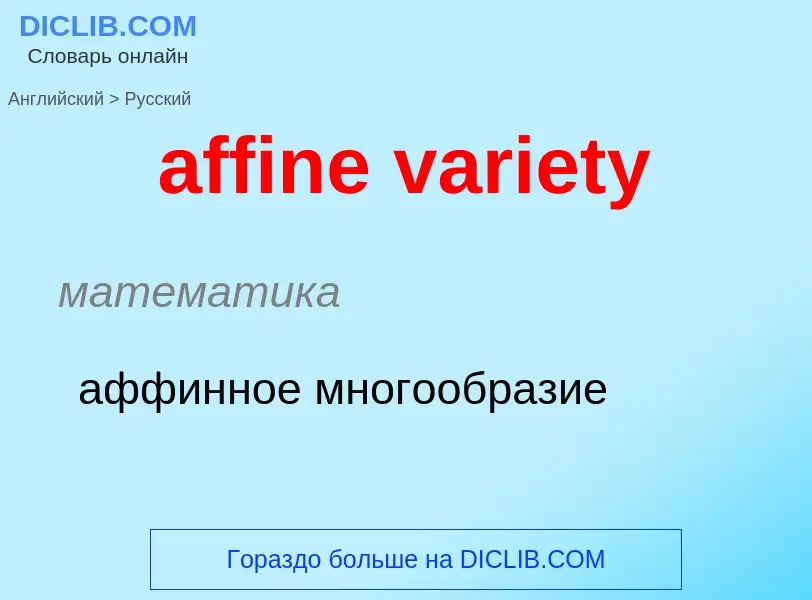Traducción y análisis de palabras por inteligencia artificial ChatGPT
En esta página puede obtener un análisis detallado de una palabra o frase, producido utilizando la mejor tecnología de inteligencia artificial hasta la fecha:
- cómo se usa la palabra
- frecuencia de uso
- se utiliza con más frecuencia en el habla oral o escrita
- opciones de traducción
- ejemplos de uso (varias frases con traducción)
- etimología
affine variety - traducción al ruso
математика
аффинное многообразие
математика
координатное кольцо
математика
квазипроективное многообразие
Definición
Wikipedia
In algebraic geometry, an affine variety, or affine algebraic variety, over an algebraically closed field k is the zero-locus in the affine space kn of some finite family of polynomials of n variables with coefficients in k that generate a prime ideal. If the condition of generating a prime ideal is removed, such a set is called an (affine) algebraic set. A Zariski open subvariety of an affine variety is called a quasi-affine variety.
Some texts do not require a prime ideal, and call irreducible an algebraic variety defined by a prime ideal. This article refers to zero-loci of not necessarily prime ideals as affine algebraic sets.
In some contexts, it is useful to distinguish the field k in which the coefficients are considered, from the algebraically closed field K (containing k) over which the zero-locus is considered (that is, the points of the affine variety are in Kn). In this case, the variety is said defined over k, and the points of the variety that belong to kn are said k-rational or rational over k. In the common case where k is the field of real numbers, a k-rational point is called a real point. When the field k is not specified, a rational point is a point that is rational over the rational numbers. For example, Fermat's Last Theorem asserts that the affine algebraic variety (it is a curve) defined by xn + yn − 1 = 0 has no rational points for any integer n greater than two.

